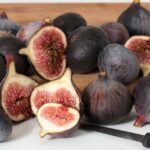As if dealing with acne wasn’t frustrating enough, now there’s evidence to suggest that what you eat could be contributing to those pesky pimples. While the link between diet and acne isn’t entirely clear yet, there are some foods that seem to be more problematic than others.
First things first: what causes acne? It’s generally thought to be a combination of factors, including excess oil production, clogged pores, and inflammation. And while genetics and hormones play a role, there are certain lifestyle factors that can exacerbate the problem. Enter: your diet.
One of the biggest culprits seems to be dairy. Studies have found that people who consume more dairy – especially skim milk – are more likely to experience acne than those who consume less. It’s thought that the hormones and growth factors in milk could be to blame. If you’re a big dairy consumer and you’re struggling with acne, it might be worth cutting back for a few weeks to see if you notice a difference.
Another food group that could be problematic is high-glycemic-index foods. These are foods that cause a rapid spike in blood sugar, like white bread, sugary drinks, and sweets. When your blood sugar spikes, it triggers a surge of insulin, which can lead to inflammation and increased oil production – two things that can contribute to acne. If you’re prone to breakouts, try swapping out high-glycemic foods for lower-glycemic options, like whole grains, fruits, and vegetables.
Interestingly, there are also some foods that could be beneficial for acne-prone skin. Omega-3 fatty acids, found in fatty fish like salmon and sardines, have anti-inflammatory properties that could help reduce redness and inflammation. Probiotics, found in foods like yogurt and kefir, could also be helpful for acne, as they support a healthy gut microbiome – and there’s evidence to suggest that a healthy gut can lead to clearer skin.
Of course, it’s worth noting that everyone’s skin is different, and what works for one person might not work for another. But if you’re struggling with acne and you’re not sure where to start, taking a closer look at your diet could be a good first step. And even if changing your diet doesn’t lead to a dramatic improvement in your skin, it’s still a good idea to prioritize healthy, whole foods for overall health and well-being. After all, you are what you eat.




